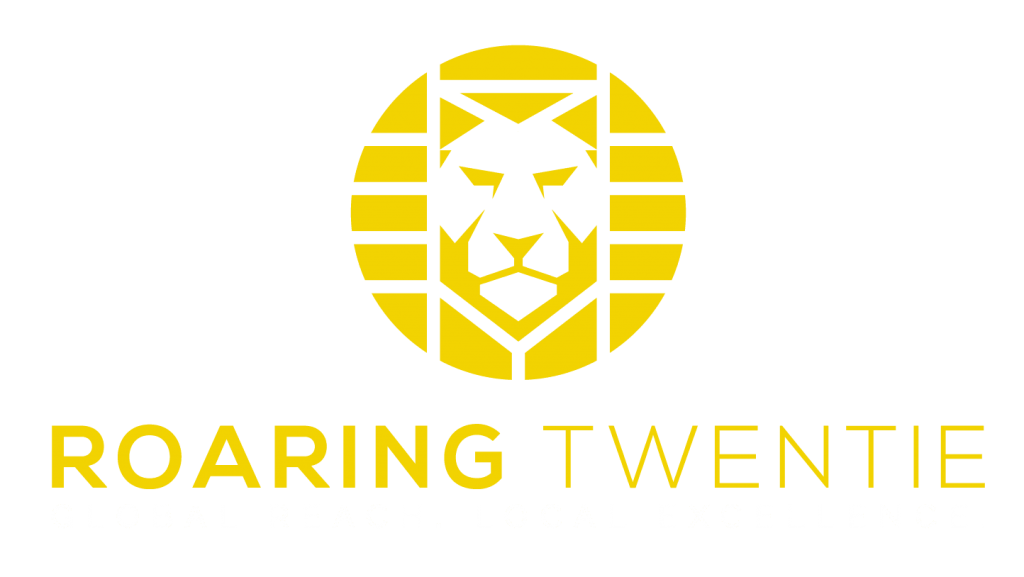This company has no active jobs
0 Review
Rate This Company ( No reviews yet )
About Us
Chicken Road: The High-Stakes Gamble of Risk Aversion in Casino Gaming
Chicken Road: The High-Stakes Gamble of Risk Aversion in Casino Gaming
Imagine yourself at a bustling baccarat table, the green felt illuminated under the chandelier’s glow. Players are hunched over their cards, their faces betraying a mixture of anticipation and anxiety. A specific pattern emerges – a series of bets, small and cautious, followed by a sudden, almost panicked retreat when the tide seems to turn. This, in essence, is “Chicken Road,” a pervasive and often misunderstood strategy (or lack thereof) observed in casino gaming, particularly in games like baccarat, roulette, and even blackjack. It’s a dance between risk and fear, a testament to the psychological complexities that underpin our decision-making under pressure. But is it a viable approach, or simply a recipe for slow and agonizing losses? Let’s delve into the intricacies of Chicken Road, exploring its motivations, manifestations, and ultimately, its effectiveness (or lack thereof) in the casino environment.
Understanding the Psychology Behind Chicken Road
Chicken Road isn’t a codified strategy in the same vein as card counting or optimal blackjack play. Rather, it’s a behavioral pattern driven by a potent cocktail of psychological factors. Fear of loss, the thrill of a small win, and the cognitive biases that cloud our judgment all play a significant role.
Loss Aversion: The pain of losing money is psychologically more potent than the pleasure of winning the same amount. This inherent bias drives players to be overly cautious, leading them to make small bets when they perceive a risk and quickly retreat when they experience even a minor loss. They prioritize avoiding losses over maximizing potential gains.
The Gambler’s Fallacy: This is the mistaken belief that past events influence future independent events. In a game of chance like roulette, a player might believe that after a series of red results, black is “due” to appear. This fallacy can lead to Chicken Road behavior, with players making small bets on black, only to chicken out and retreat after another red.
Confirmation Bias: Players selectively interpret information to confirm their existing beliefs. If someone believes a particular strategy is working (even if it isn’t statistically sound), they’ll focus on the wins and downplay the losses, reinforcing their Chicken Road approach.
The Illusion of Control: Casino games are, by their nature, games of chance. However, players often fall prey to the illusion of control, believing that they can influence the outcome through rituals, betting patterns, or other superstitions. This illusion fuels the small, cautious bets characteristic of Chicken Road, as players attempt to exert control over an inherently random process.
Risk Tolerance: An individual’s risk tolerance varies depending on factors like personality, financial situation, and emotional state. Players with low risk tolerance are more likely to adopt Chicken Road, prioritizing capital preservation over the pursuit of substantial wins.
These psychological factors combine to create a behavioral pattern where players exhibit excessive caution, driven by a fear of losing more than they are willing to risk. This leads to a series of small bets, followed by a hasty retreat at the first sign of adversity.
Identifying Chicken Road in Different Casino Games
The manifestation of Chicken Road varies slightly depending on the specific casino game. While the underlying psychological principles remain the same, the specific actions and betting patterns differ.
Baccarat: The Epitome of Chicken Road
Baccarat is perhaps the game where Chicken Road is most readily observed. The simplified gameplay (betting on Player, Banker, or Tie) and the relatively low house edge on Player and Banker bets make it an attractive option for cautious players.
Small, Incremental Bets: Players adopting Chicken Road in baccarat often make small bets on either Player or Banker, carefully observing the “roadmaps” or scorecards that track previous results.
Switching Sides Frequently: If their chosen side loses even once, they’ll frequently switch to the other side, hoping to capitalize on a perceived “trend” or avoid further losses.
Avoiding Larger Bets: They rarely deviate from their small bet size, even when they feel they have an edge. The fear of losing a larger sum outweighs the potential for a significant win.
Prematurely Cashing Out: After a small win or a series of small wins, they often prematurely cash out, content with a minimal profit and unwilling to risk it on further bets.
| Characteristic | Description |
|---|---|
| Bet Size | Consistently small, often the table minimum. |
| Side Switching | Frequent changes between Player and Banker bets. |
| Roadmap Reliance | Heavy dependence on historical data (roadmaps) to predict future outcomes. |
| Risk Aversion | High level of aversion to larger losses. |
| Profit Target | Low profit target, content with small gains. |
Roulette: Playing it Safe on the Outside
In roulette, Chicken Road typically manifests in cautious betting on the outside bets, such as even/odd, red/black, or high/low. These bets offer a lower payout (1:1) but also a lower variance, making them appealing to risk-averse players.
Sticking to Even-Money Bets: Players predominantly bet on even-money outcomes (e.g., red/black), avoiding the riskier single-number bets or combinations.
Cautious Progression Systems: They might employ a very conservative progression system, like doubling their bet only after a significant losing streak, but quickly reverting to the initial bet size after a win.
Fear of Zero: They often avoid betting on combinations that include zero (0 or 00), fearing the increased house edge.
Quitting After Small Losses: Similar to baccarat, they are quick to quit after experiencing even minor losses, unwilling to chase their losses.
Blackjack: Playing by the Book, with Extra Caution
Even in blackjack, where skill plays a more significant role, Chicken Road can be observed. These players often adhere rigidly to basic strategy, but with an added layer of caution and risk aversion.
Strict Adherence to Basic Strategy: They meticulously follow basic strategy charts, but often hesitate to deviate even in situations where deviation might be advantageous (e.g., soft totals).
Avoiding Risky Plays: They rarely double down on marginal hands or split pairs aggressively, preferring to play it safe and minimize their potential losses.
Conservative Bankroll Management: They set extremely strict stop-loss limits and adhere to them religiously, often quitting after a relatively small loss.
Fear of Busting: They are overly cautious when hitting on stiff hands (12-16), often standing even when basic strategy dictates hitting, fearing the possibility of busting.
The Pitfalls of Chicken Road: Why It’s a Losing Strategy
While the motivations behind Chicken Road are understandable, it is, in most cases, a demonstrably losing strategy. The inherent house edge in casino games means that, over the long run, the casino will always have an advantage. Chicken Road simply exacerbates this disadvantage by:
Failing to Capitalize on Winning Streaks: By constantly retreating and making small bets, players fail to capitalize on winning streaks, limiting their potential profits.
Exposing Themselves to the House Edge for Longer: By playing for longer periods of time with small bets, players expose themselves to the house edge for a longer duration, increasing the likelihood of losing their bankroll.
Missing Opportunities for Positive Expected Value Bets: In games like blackjack, Chicken Road players often miss opportunities to make bets with a positive expected value (e.g., doubling down on a favorable hand), further reducing their potential profits.
Creating a Self-Fulfilling Prophecy: The constant fear of losing can lead to anxiety and poor decision-making, ultimately increasing the likelihood of losses. The player essentially creates a self-fulfilling prophecy of failure.
Emotional Distress: The constant anxiety and fear associated with Chicken Road can lead to emotional distress and a negative gambling experience. The player is essentially “sweating” every small bet, leading to an unenjoyable and stressful time at the casino.
| Pitfall | Description |
|---|---|
| Missed Opportunities | Failure to capitalize on winning streaks or favorable situations. |
| Prolonged Exposure | Increased exposure to the house edge over time. |
| Suboptimal Decisions | Making conservative choices that reduce potential profits. |
| Self-Fulfilling Prophecy | Negative mindset leading to poor decision-making and losses. |
| Emotional Distress | Anxiety and fear resulting in an unenjoyable gambling experience. |
Alternatives to Chicken Road: Developing a Balanced Approach
Instead of resorting to Chicken Road, players should strive to develop a more balanced and informed approach to casino gaming. This involves understanding the game’s rules and probabilities, managing your bankroll effectively, and making rational decisions based on sound principles.
Learn the Game: Understand the rules, probabilities, and house edge of the game you’re playing. Knowledge is power, and it will help you make more informed decisions.
Develop a Bankroll Management Strategy: Set a budget for your gambling session and stick to it. Determine how much you are willing to lose before you quit, and don’t chase your losses.
Understand Basic Strategy (for Blackjack): Learn basic strategy for blackjack, which dictates the optimal play for every hand based on the dealer’s upcard.
Embrace Variance: Understand that variance is an inherent part of casino gaming. You will experience both winning and losing streaks. Don’t let short-term losses derail your strategy.
Consider Advantage Play (with Caution): If you’re serious about winning, consider learning advantage play techniques like card counting (in blackjack) or hole carding (in other games). However, be aware that these techniques are often frowned upon by casinos.
Focus on Entertainment: Remember that casino gaming should be a form of entertainment. Don’t treat it as a way to make money. If you’re not having fun, it’s time to quit.
- Practice Disciplined Betting: Determine the bet size that fits your budget and stick to it, increasing only with a clear strategy and not out of emotional reaction.
- Knowledge: Understand the games, odds and strategies.
- Bankroll: Manage funds responsibly and set limits.
- Discipline: Stick to your chosen betting plans without emotional interference.
- Realism: Acknowledge gambling as entertainment, not a reliable income.
Conclusion: Embracing Calculated Risk Over Fearful Retreat
Chicken Road, with its roots in fear and loss aversion, ultimately proves to be a self-defeating approach to casino gaming. While the desire to protect one’s bankroll is understandable, the constant retreat and overly cautious betting patterns associated with Chicken Road (Read the Full Guide) prevent players from capitalizing on winning streaks and expose them to the house edge for a longer duration. Instead of succumbing to fear, players should embrace a more balanced and informed approach, focusing on learning the game, managing their bankroll effectively, and making rational decisions based on sound principles. While calculated risks are necessary for potentially larger wins, it is important to remember that gambling should be primarily a form of entertainment, not a desperate attempt to generate income. By shifting their mindset from fearful retreat to calculated risk, players can not only improve their chances of winning but also enhance their overall gambling experience. So, the next time you find yourself at the casino, consider leaving the Chicken Road behind and embarking on a more rewarding and enjoyable journey.


